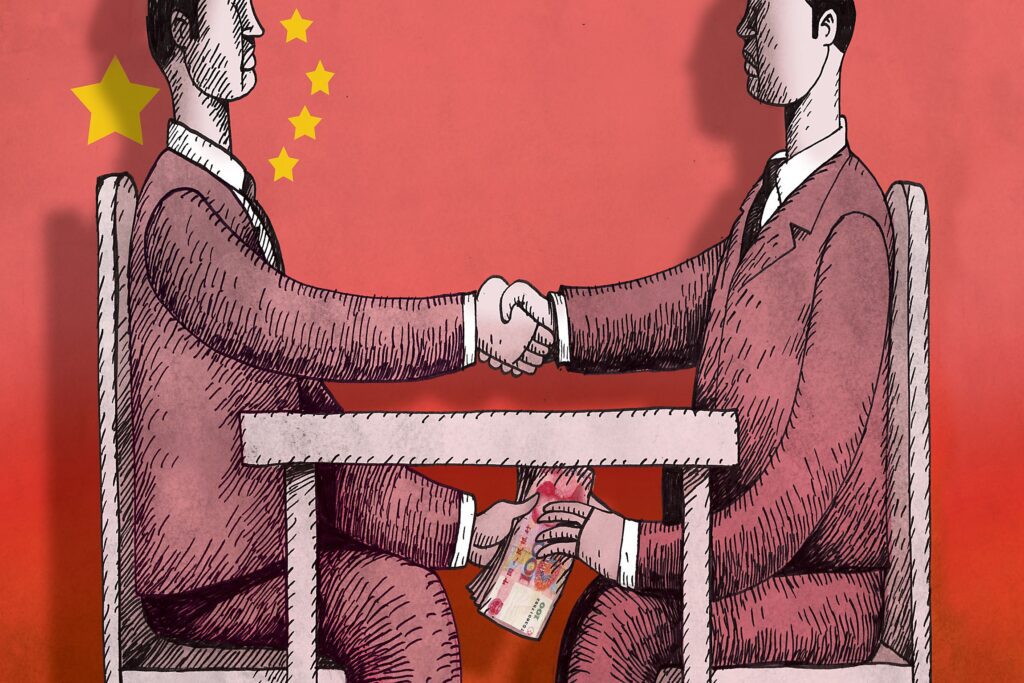A new law to regulate the online retail industry of China
2019 has brought big changes in Chinese laws and regulations. One of the most prolific of reglementary updates is the new IIT law and the related updates it brings along, as we have already covered.
However, there is another novelty among the regulations, worthy of coverage, as it directly affects many businesses of modern-day China. It is the so-called e-commerce law, effective as of January 1, 2019. This is the first overarching law of China which attempts to regulate the country’s booming e-commerce industry.
Keep reading to learn more about the effects of this new law!
Read more about the changes in China’s IIT Law: China’s IIT Law Withholding Measures for 2019 Released
The struggles of the e-commerce sector
Chinese e-commerce has had a gust of controversy surrounding it from the outset. Crackdowns on counterfeit goods sold by independent vendors across Chinese e-commerce marketplaces, issues with the tax-avoidance of daigou, and more. These were just some of the major affairs e-tailers were facing.
The problem of lax regulations regarding e-commerce was so evident, that Alibaba Group released a public appeal back in 2017. In the appeal, the company called for stricter laws, along with firmer enforcement and penalties on vendors of counterfeit goods. The notice criticized the lenient regulations, allowing criminals to continue with illegal activities without facing any severe consequences. The illegal vendors using Alibaba Group’s Taobao market as their platform have also smeared the tech giant’s name. Due to counterfeit goods, the company has been consistently included in the Office of the United States Trade Representative’s “Special 301” Out-of-Cycle Review of Notorious Markets list.
Moreover, the daigou – traveling shopping agents who buy luxury goods from overseas for resale in China – had been receiving more and more attention from the officials. The issue with daigou? Not only do daigou sellers avoid paying taxes, but their business often also goes undocumented and is often trust-based. Whether luxury goods, food supplements, or baby formulas, neither the shoppers nor sellers possessed any rights with this purchase method. It is not uncommon for daigou agents to cheat customers by selling them counterfeit products
New law to regulate e-commerce
The e-commerce law, which was first proposed in August of 2018, aims to “regulate e-commerce conduct” and “to promote the sustainable and healthy development of e-commerce “. Thus, it is mainly seen as a positive development for the entire e-tailing sector.
The news is positive for luxury brands hoping to sell more of their pricy items. For example, the new law raises the tax exemption limit for cross-border purchases. The limit of a single transaction will be increased from RMB 2,000 to RMB 5,000. The annual purchase amount increasing from RMB 20,000 to RMB 26,000. Cross-border purchases under the new law will be exempt from duties and will receive a 30 percent discount on consumption tax and VAT.
The fight on counterfeit merchandise is also more apparent, as all e-commerce operators must now be properly registered and licensed. Additionally, electronic payment methods, taxation, and e-commerce dispute resolutions will be monitored more closely.
With a focus on consumer protection, the new law addresses the protection of intellectual property, data protection, and cyber-security. The law also takes a stricter stance to fight false advertising.
For large operators, e.g. JD.com and Alibaba, the new regulations will be easy to comply with. However, smaller e-commerce platforms with fewer resources and assets, the rulings may be harder to follow and will thus be put at a disadvantage, directly influencing their growth in the domestic market. ‘
Who will be affected by the law?
The new law will be relevant to three types of operators. Large e-commerce platform operators, such as Taobao, also third-party traders mediating goods and services of others for a margin, and online vendors operating own websites or conducting business through other channels, such as social media websites.
The addition of e-commerce platforms, that are less-known and traditionally used, is a smart move to regulate merchants selling goods through WeChat’s Moments feed or through a video-sharing app Douyin (known in the West as TikTok). According to the law, these sellers will now have to file their business registration and pay all the required taxes.
Merchants to have more responsibilities
Previously, merchants were solely responsible when caught selling copycat merchandise. The new law places more liabilities on the e-commerce platforms, making them jointly responsible for merchants if these were to use the platform to sell any fake goods. Hence, if a platform operator is aware of IP rights being violated on the website yet fails to take any actions to prevent this from happening, they will also be considered an offender in such a situation. This leaves platform operators under more strain – the likes of Alibaba, JD.com, and Pinduoduo must now diligently control the scope of online sales on their websites. Failing to do so can lead to a fine of up to RMB 2 million in more serious cases.
The operators are also obliged to keep transaction records of up to three years, along with information or services and products supplied.
Daigou getting creative to go around the new law
As the new law requires online sellers to disclose their business licenses, which forces the daigou, who operate in a gray area, to get creative with their approach. According to a post published on a popular WeChat-based blog InsDaily, titled as “First day of the new year – what happened to daigou?”, the online sellers have figured out new ways to market their business. Allegedly, some of these cross-border shopping agents try to avoid getting their business detected by promoting their products via hand-drawn product photos, fake names, or by using foreign languages to introduce them, such as Japanese or Russian. Some try to hide their business by only communicating with their clients via voice messages.
It is unclear at this point how Tencent, the owner of WeChat, will regulate daigou activities on its platform. However, the company stated via Beijing Youth Daily that they have never encouraged any commercial activities via personal WeChat accounts. They have not implemented regulations against sales agents on WeChat yet.
What to expect next?
As the law has just recently been implemented, it is too early to speak of its impact and efficiency.
While it is a huge step towards improving the IP protection issues China is so infamous for, the wording of the new law has been also described as vague, leaving a lot for open interpretation. In fact, The Diplomat claims the e-commerce law is a mere codification of an already existing law established by China’s courts. While establishing a set of laws and regulations, aiming to regulate the vast online retailing business and to protect the rights of consumers and intellectual property is a step in the right direction, there is clearly room for improvement. The future could see re-issuing the law with more specific guidelines on the expected consequences, especially for daigou. And while it initially may feel like a burden, the law also aims to extend some protection to domestic IP owners.
Need assistance in navigating through the upcoming regulations? Get in touch with our team for a consultation and follow us on social media to receive the latest news!
Our experienced team has the necessary expertise and the know-how to support you with your business – have a look at the services we offer.
Also, don’t forget to follow us on social media to receive all the latest updates!
See how much salary you receive after tax and check your company value without leaving WeChat!
Also, our Mini Program can estimate the salary in your industry, for your experience level and position. A huge help for salary negotiations!






